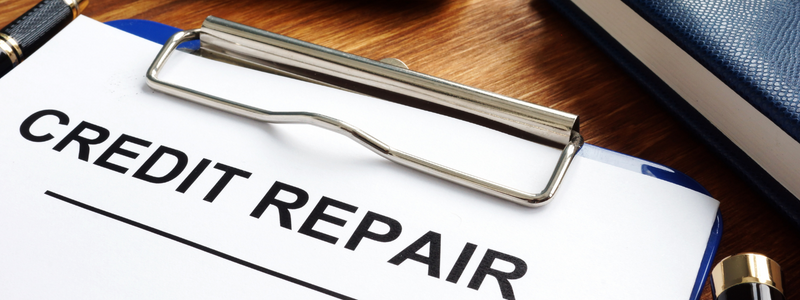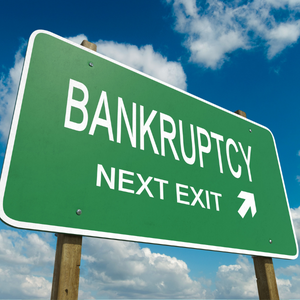
Bankruptcy hurts your credit; there is no doubt about that. However, despite popular belief, the damage is not irreparable. By exercising restraint and persistence, you can slowly begin repairing your credit and work toward a more secure financial future. You don’t have to wait the seven years to get started, either. You can take steps today to begin to undo the damage.
Check Your Report To Ensure It Reflects Your Bankruptcy
You may think that your score will fare better without your bankruptcy reflecting on your report, but the truth is that a bankruptcy filing looks much better than a bunch of delinquent accounts. Review your reports to make sure that all the accounts you had discharged through bankruptcy reflect a $0 balance.
It is not uncommon for lenders to continue to send negative information to the bureaus even when they clearly know an account is no longer active. Creditors may do this out of laziness or sheer spite. Even though you have a bankruptcy on your file, new negative information can continue to hurt your score. To make sure this doesn’t happen, monitor your report on a monthly basis across all three credit bureaus.
If you notice that any of your discharged accounts remain active post-filing, file a dispute. In addition to filing a dispute, send a copy of the discharge notice to all three credit reporting agencies. Doing so will alert them that they are not to report any more information on discharged accounts.
Avoid Credit Repair Agencies
There are many unscrupulous entrepreneurs who see an opportunity in desperate consumers. These companies claim to be able to remove bankruptcies from consumers’ credit reports, dispute errors on clients’ behalf and recommend ways in which individuals can boost their scores. While the latter two claims are true, there is nothing an agency can do for you if the bankruptcy report is accurate. As for disputing errors and repairing your credit, these are things you can do for yourself, and without paying an outrageous fee. In short, if a company tries to win your business by saying it will erase your bankruptcy, walk away.
Keep Paying Non-Discharged Accounts on Time
You may have some debt that was not included in your bankruptcy. Such debt includes mortgage debt, unpaid taxes, student loans and court fees. Review your report and bankruptcy discharge notices to determine what, if any, balances you must continue to pay down. Make sure you make payments towards those balances on time every month. Failure to do so may result in further negative action on your report. However, continuing to make timely payments can only serve to boost your score.
Establish New Credit
One of the best things you can do for your repairing your credit score post-bankruptcy is to establish new credit. Though this may be easier said than done depending on your post-bankruptcy score, there are lenders out there who cater to filers and those with bad credit.
Retailers and gas card companies tend to have lower qualification standards than many other lenders. Some lenders may be more inclined to approve you, knowing full well that you cannot file for bankruptcy again for another seven years. If you don’t have any luck with a traditional card, however, consider a secured credit card or personal loan. A secured loan or line of credit will require you to put down a security deposit in exchange for a comparable line of credit. If you demonstrate good borrowing behavior for six months to a year, most issuers will convert your card to an unsecured one.
Bear in mind that given your score post-bankruptcy, you will likely be subject to high interest rates and more restrictions. However, these are necessary evils to overcome in the process of repairing your credit. Also, if you use your cards to only make small purchases, and you pay the balance in full each month, you’ll avoid racking up interest and start accruing positive marks on your report.
Apply Sparingly
Though you need new credit to rebuild your credit, don’t get overzealous with your card applications. Approximately 10% of your score is based off credit inquiries. Moreover, hard inquiries stay on your account for one to two years, so spread out your applications over time. Once you get approved for one card, refrain from applying for another for at least six months.
Be Careful Not To Repeat Past Mistakes
Many people view bankruptcy as a means of obtaining a clean financial slate. While bankruptcy does grant you a fresh financial start, it can’t erase bad spending habits. That is up to you.
If you don’t learn from past mistakes and continue to recklessly rack up debt, fall behind on payments and live beyond your means, you will find yourself in the same situation that forced you to file bankruptcy in the first place. Once your debts have been discharged, take an honest look at your spending habits, devise a budget and resolve to spend responsibly going forward.
Depending on how much debt you have, you may be able to resolve your financial difficulties with a personal loan and without filing for bankruptcy. Explore your options today.



